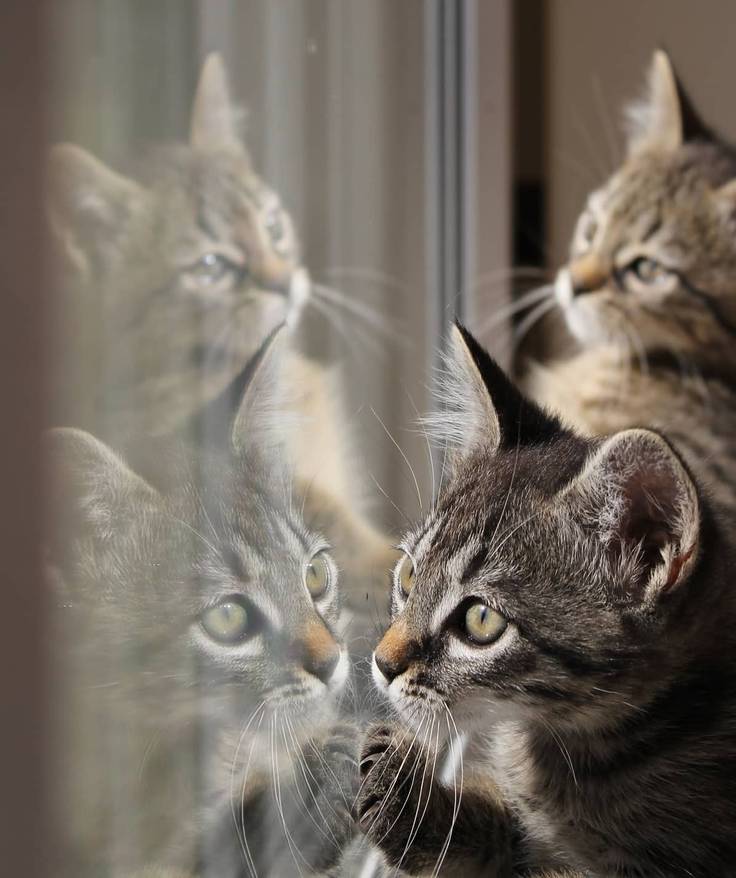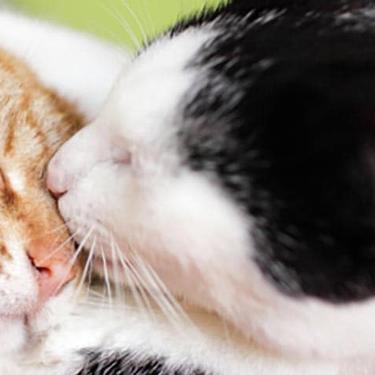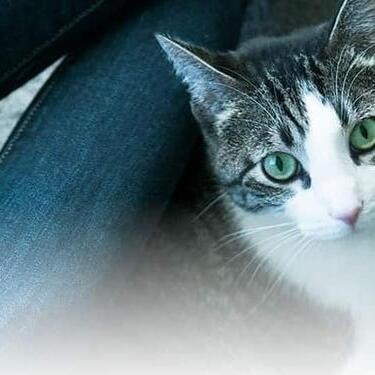
-
Find the right food for your petTake this quiz to see which food may be the best for your furry friend.Find the right food for your petTake this quiz to see which food may be the best for your furry friend.Featured products
 Puppy Sensitive Stomach & Skin Salmon & Brown Rice Recipe
Puppy Sensitive Stomach & Skin Salmon & Brown Rice RecipeDelicious, highly digestible recipe, gentle on stomachs. Nourishes skin & promotes a lustrous coat
Shop Now Adult Chicken & Barley Recipe Dog Food
Adult Chicken & Barley Recipe Dog FoodSupports lean muscle and beautiful coat for adult dogs
Shop Now Puppy Large Breed Chicken & Brown Rice Recipe
Puppy Large Breed Chicken & Brown Rice RecipeVital nutrients to support 5 essential building blocks for lifelong health
Shop NowFeatured products Kitten Chicken Recipe
Kitten Chicken RecipeVital nutrients to support 5 essential building blocks for lifelong health
Shop Now Adult Urinary Hairball Control Chicken & Rice Recipe Cat Food
Adult Urinary Hairball Control Chicken & Rice Recipe Cat FoodActively supports the health of the whole urinary system
Shop Now Adult 7+ Chicken Recipe Cat Food
Adult 7+ Chicken Recipe Cat FoodSupports energy level and beautiful fur in mature cats
Shop Now -
Dog
- Dog Tips & Articles
-
Health Category
- Weight
- Food & Environmental Sensitivities
- Urinary
- Digestive
- Joint
- Kidney
-
Life Stage
- Puppy Nutrition
- Adult Nutrition
- Senior Nutrition
Cat- Cat Tips & Articles
-
Health Category
- Weight
- Skin & Food Sensitivities
- Urinary
- Digestive
- Kidney
-
Life Stage
- Kitten Nutrition
- Adult Nutrition
Featured articles Water
WaterDiscover why water is the most important nutrient for your dog or cat to live a healthy life. Find out how much water your pet should consume each day.
Read More Pet Food Storage Tips
Pet Food Storage TipsDiscover how and where to store your dry, as well as canned, dog and cat food. Learn how to find the "best before" dates on all Hill's pet food packaging.
Read More The Incredible Science Behind Your Pet's Microbiome
The Incredible Science Behind Your Pet's MicrobiomeLearn what a pet's microbiome is, how it contributes to your pet's gut & overall health, and why nutrition is important in maintaining healthy microbiomes.
Read More -


You may have noticed your feline friend staring at herself in the mirror or at another shiny surface once or twice. But do cats understand mirrors? Does she know that she's gazing at herself?
Who's That Kitty?
For nearly half a century, scientists have studied the concept of self-recognition in animals, including cat self-awareness. For many creatures, the evidence for this cognitive skill remains inconclusive.
This doesn't mean that our furry friends lack the smarts to recognize themselves; rather, it comes down to the cognitive capabilities of their species. "It takes a good deal of sophisticated integration of information about yourself and your own movements and what you're seeing in front of you in that glass" to recognize your mirror image, animal psychologist Diana Reiss tells National Geographic. This also applies to newborn humans. Babies have no clue about what they look like until they are older than one year of age, notes Psychology Today.
As explained by Popular Science, cats actually don't recognize themselves in the mirror, despite what you see in those cute cat videos or in your own home. When they spot a mirrored kitty, some cats will duck behind the mirror to look for the other cat, some will ignore the reflection and others will "act wary or aggressive towards what appears to be another cat able to counteract [her] own gestures perfectly." This "attack posture" may seem like your kitty is waving to herself, Popular Science says, but she's actually in defense mode. Your kitty's puffed-out tail and the way her ears are tilted are a response to the "threat" of her own reflection.
What Science Can Tell Us
There's scientific evidence to support the claim that many animals do (and don't) recognize themselves in a reflection. Scientific American writes that when an animal glimpses itself in a mirror, "it may not understand 'That's me!' in the same way as a human would, but it may know that its body is its own and does not belong to someone else." Examples of this understanding include instances when animals recognize the abilities and limitations of their own bodies while performing physical activities, such as running, jumping and hunting. You'll see these concepts in motion when, say, your cat jumps to the top of the kitchen cabinets.



Tasty Tips
Studying animal cognition is difficult, as you may well imagine, and testing can be problematic for various reasons. Scientific American references the issues with the "red spot test," also called the mirror self-reflection test, a well-known study conducted in 1970 by psychologist Gordon Gallup and published in The Cognitive Animal. Researchers placed an unscented red dot on a sedated animal's forehead and then observed how the animal, upon waking up, reacted to its reflection. If the animal touched the red spot, Gallup hypothesized, it was an indication that the animal recognized the altered state of its own appearance: in other words, self-recognition.
Although most animals failed Gallup's test, a few did pass, such as dolphins, great apes (gorillas, chimpanzees, orangutans and bonobos) and magpies. Not included in this list? Dogs and cats.
The failure of most animals is not surprising, some critics say, because many creatures simply don't know what they look like. Cats and dogs, for example, rely on their olfactory sense to identify pieces of their surroundings, such as their home, their pet parents and other pets. Your cat knows who you are not because of facial recognition but because she knows your scent. Animals that don't have an instinct to groom may also recognize a red dot on themselves but not feel the need to remove it.
Starting With the Cat in the Mirror
Do cats understand mirrors? Maybe. The extent of cat self-awareness is still a mystery. Despite all of the wisdom contained in her all-knowing eyes, when your cat's pacing back and forth in front of mirror, she's probably not admiring the sleekness of her coat or the smoothness of her freshly-trimmed nails.
More than likely, she's investigating the stranger that is too close for comfort. If looking in a mirror stresses out your kitty, remove the mirror if possible and divert her attention with fun DIY toys, catnip mice or jingly balls. If she stares calmly into the eyes of the cat before her, who knows? She may just be pondering her own existence.


Christine O'Brien is a writer, mom, and long-time cat parent whose two Russian Blues rule the house. Her work also appears in Care.com, What to Expect, and Fit Pregnancy, where she writes about pets, pregnancy, and family life. Find and follow her on Instagram and Twitter @brovelliobrien.
Related products

Vital nutrients to support 5 essential building blocks for lifelong health

Actively supports the health of the whole urinary system

Supports energy level and beautiful fur in mature cats

Supports lean muscle and beautiful fur for adult cats
Related articles

Discover how to identify cat sensitive skin and what you can do to help your cat thrive from head to paw.

Learn the different factors that might be contributing to your cat's weight gain, and how bigger doesn't always mean better.

What is the best food for an overweight cat? Learn all about weight control food for cats, including what's in it and how it works.

Brushing your cat's teeth is just as important as brushing your own. Learn signs or oral health problems in your cat and how to avoid them.

Put your cat on a diet without them knowing
Our low calorie formula helps you control your cat's weight. It's packed with high-quality protein for building lean muscles, and made with purposeful ingredients for a flavorful, nutritious meal. Clinically proven antioxidants, Vitamin C+E, help promote a healthy immune system.
Put your cat on a diet without them knowing
Our low calorie formula helps you control your cat's weight. It's packed with high-quality protein for building lean muscles, and made with purposeful ingredients for a flavorful, nutritious meal. Clinically proven antioxidants, Vitamin C+E, help promote a healthy immune system.

